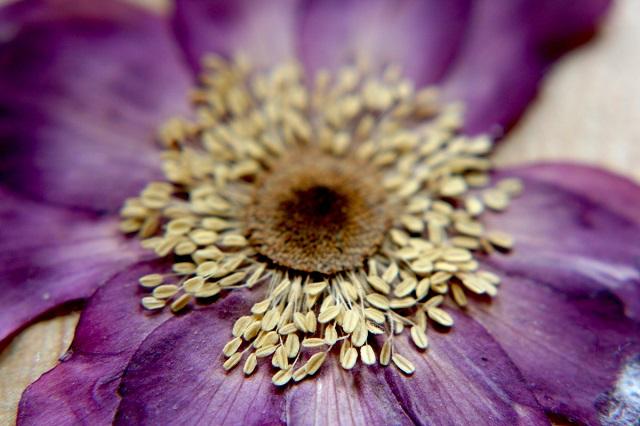
The Beat
Guns and trust in the Solomon Islands
Limited rearmament is the name of the game in the Solomon Islands this week. On Tuesday, some 125 officers from the Royal Solomon Islands Police Force gained access to firearms, in anticipation of the withdrawal of RAMSI personnel in June. Local police were disarmed in 2003, after police weapons were used to perpetrate ethnic violence during the Tensions. The political leadership supports the program of limited rearmament, but there’ll be a lot of work to earn community trust. The officers, part of the close personal protection and police response teams, will be counting on extensive use-of-force training, a modern armory, and the nature of their firearms (non-assault weaponry) to gain and sustain public faith and support. In the meantime, if you’re looking for some more context, ASPI’s Graeme Dobell has a rundown of RAMSI’s legacy here.
AFP looking strong
The AFP emerges from the 2017 Federal Budget looking good—there’s provision for an extra $321 million to help expand the force. The money will bolster specialist response capabilities (e.g. police negotiators and bomb technicians), covert surveillance capabilities and forensic and intelligence capabilities (e.g. biometric experts and forensic intelligence analysts). But it’s hard to separate the politics from the police funding and the Opposition claims that, even with the one-off boost, there’s still some worry about the level of funding.
If you just want to be amazed, check out the AFP Commander and strongman Grant Edwards pulling a 14 tonne RBT truck—he’s working up to a Guinness World Record attempt to raise awareness of PTSD.
CT Scan
‘Extreme Vetting’ and Social Media
Approximately 65,000 visa applications will be affected each year by a new proposal from the US State Department to begin incorporating checks of social media accounts into visa decisions. The additional screening was announced on 4 May and will be used for applications which ‘have been determined to warrant additional scrutiny’. The US Department of Homeland Security has already been collecting similar information, though up until now such data has been provided voluntarily. While visa applicants can still opt-out, they must provide a ‘credible reason’ for doing so. Supporters of the initiative argue that although open-source social media checks won’t catch every potential threat, they ‘might spot obvious concerns early in the visa approval process’. But sceptics worry that potential budget and personnel cuts in the State Department could make the proposed changes problematic.
Australia’s continued commitment to counter Islamic State (IS)
Minister for Defence, Senator Marise Payne, attended a meeting of defence ministers on 9 May as part of the Global Coalition against Daesh (IS). The meeting was held in Copenhagen and delegates examined how the coalition could ‘further progress’ their campaign against the extremist group, while continuing to support Iraq and its security forces. Perhaps delegates should address some of the issues brought up in a recent paper from the RAND Corporation, which argues that defeating IS requires a broader strategy that would ‘address the conditions that allowed the group to emerge and thrive’. RAND argues that a long-term commitment is required to ‘establish legitimate governance in Iraq and Syria and reconcile the disenfranchised Sunni Arab populations with their governments’.
Checkpoint
Oz biosecurity tough on rare plants
What do Johnny Depp’s dogs and pressed plant specimens from the mid-1800s have in common? The answer is that they’ve both come up against Australia’s tough biosecurity laws. While Pistol and Boo avoided a grim fate, the plant matter couldn’t escape incineration after failing to comply with import paperwork. Back in March, the Museum of Natural History in Paris sent a collection of rare, flowering plants—‘the first type specimens collected of a species’—to Queensland’s herbarium in Brisbane. This is the second such incident in a few weeks, after lichen species from New Zealand’s Allan herbarium bound for the Australian National Herbarium in Canberra were also destroyed by biosecurity authorities, resulting in the NZ institution placing a ban on exchanging material with Australia. As a result, the Department of Agriculture and Water Resources has undertaken a review of its quarantine processes.
Another week, another border wall
Turkey has announced that it’ll construct a wall along its border with Iran. Like the wall Turkey has been building along its Syrian border aimed at preventing terrorist incursions, the new one will mainly target Kurdistan Worker’s Party (PKK) militants that have camps just inside the Iranian border. According to a Turkish official, PKK militants ‘enter Turkey, carry out attacks and leave’. The 70km wall will also be accompanied by towers, iron fences, lights and additional surveillance cameras. Turkey hasn’t said that it will make Iran pay for it.
First Responder
All weather is local
In western Niger, unpredictable weather and erratic floods and droughts make it difficult to rely on inherited knowledge of past climate patterns to predict where and when to find water, plant crops or sell livestock. But a CARE International project is transforming lives by producing locally-specific, real-time weather forecasts with the involvement of the region’s semi-nomadic people. It combines local knowledge and detailed weather forecasts and makes sure that information reaches remote villages, and is understood. The project also provides solar-powered mobile phones and radios to facilitate information sharing.
Beach lost and found
Residents of Dooagh on Ireland’s west coast have suddenly found themselves living by the beach—again. 33 years ago, Dooagh beach was turned into a rocky expanse after a storm ‘took every last grain of sand’. But thanks to a few windy days in April, thousands of tons of sand have been redeposited to create a 300m-long sandy beach. The town has received a significant boost from a sudden influx of tourists keen to check out the beach—while it lasts.
Twin cyclones
Check out this incredible photo captured by NASA, of Fiji ‘bookended’ by Cat-5 Cyclone Donna (which caused trouble in the Pacific over the last few days) and newly-developed Cyclone Ella.